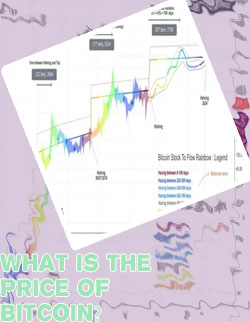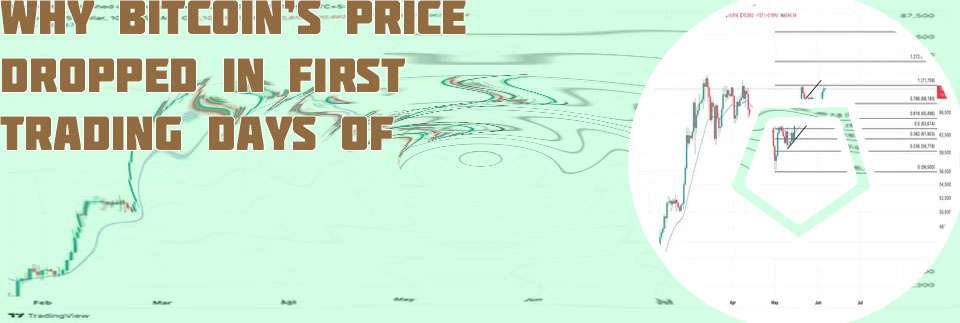Bitcoin has been a hot topic in the world of finance, with its stock price fluctuating dramatically in recent years. For those looking to gain a better understanding of Bitcoin stock price movements, it's crucial to stay informed with the latest news and analysis. Below are three articles that provide valuable insights and information on the topic:
Analyzing the Factors Impacting Bitcoin Stock Price Volatility

Bitcoin stock price volatility has been a subject of great interest and debate among investors and financial analysts worldwide. The cryptocurrency market, notorious for its extreme price fluctuations, is often influenced by a variety of factors that can impact the volatility of Bitcoin prices.
One of the key factors impacting Bitcoin stock price volatility is market demand. Like any other asset, the price of Bitcoin is heavily influenced by supply and demand dynamics. When the demand for Bitcoin increases, its price tends to rise, leading to higher volatility in the market. Conversely, when demand decreases, Bitcoin prices tend to fall, resulting in lower volatility.
Another factor that can impact Bitcoin stock price volatility is regulatory developments. The cryptocurrency market is still largely unregulated in many countries, which can lead to uncertainty and speculation among investors. Regulatory changes, such as bans on cryptocurrency trading or stricter regulation of exchanges, can have a significant impact on Bitcoin prices and volatility.
Additionally, technological advancements and innovations in the cryptocurrency space can also impact Bitcoin stock price volatility. Improvements in blockchain technology, security measures, and scalability solutions can all influence market sentiment and investor confidence, leading to fluctuations in Bitcoin prices.
Strategies for Predicting Bitcoin Stock Price Trends
In the volatile world of cryptocurrency trading, staying ahead of market trends is crucial for success. One key aspect of this is the ability to predict Bitcoin stock price movements accurately. This article delves into various strategies that traders can utilize to forecast these trends effectively.
Technical analysis is a commonly used method that involves studying past market data to identify patterns and trends. By analyzing indicators such as moving averages, support and resistance levels, and trading volume, traders can gain valuable insights into potential price movements. Another method discussed in this article is sentiment analysis, which involves gauging market sentiment through social media, news articles, and other sources. By understanding how investors feel about Bitcoin, traders can anticipate shifts in the market.
Additionally, machine learning algorithms are becoming increasingly popular for predicting Bitcoin stock price trends. By training algorithms on historical data, traders can create models that can forecast future price movements with a high degree of accuracy. These models can be automated to make real-time trading decisions based on the latest market data.
Overall, this article provides valuable insights into the various strategies available for predicting Bitcoin stock price trends. By leveraging technical analysis, sentiment analysis, and machine learning algorithms, traders can gain a competitive edge in the volatile cryptocurrency market. This article is important for investors and traders looking to improve their forecasting
The Role of Market Sentiment in Bitcoin Stock Price Movement
In the volatile world of cryptocurrency trading, market sentiment plays a crucial role in determining the price movements of assets like Bitcoin. Market sentiment refers to the overall feeling or attitude of traders and investors towards a particular asset, which can heavily influence the buying and selling decisions made in the market.
-
Social Media Impact: Social media platforms like Twitter and Reddit have become powerful tools for spreading news and influencing sentiment in the cryptocurrency market. A single tweet or post from a prominent figure can lead to a surge in buying or selling activity.
-
News and Events: News events such as regulatory announcements, security breaches, or major partnerships can have a significant impact on market sentiment. Positive news can drive up prices, while negative news can lead to a sell-off.
-
Fear and Greed: Emotions like fear and greed can drive market sentiment and lead to irrational decision-making. Fear of missing out (FOMO) can cause investors to buy in at inflated prices, while fear of a market crash can lead to panic selling.
-
Technical Analysis: While fundamental analysis focuses on the intrinsic value of an asset, technical analysis looks at historical price movements and trading volume to predict future price trends. Market sentiment is a key factor considered in technical analysis.
-
Market Manipulation: In the
